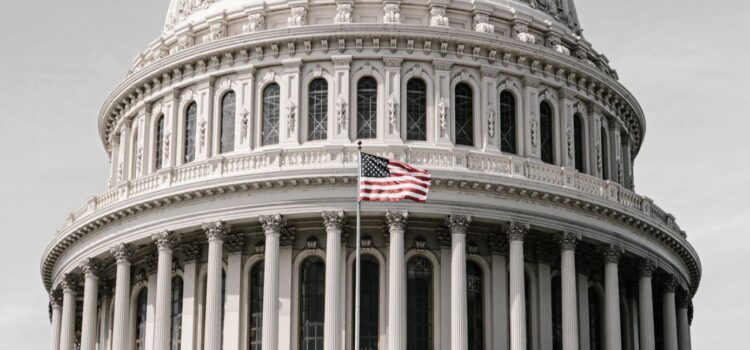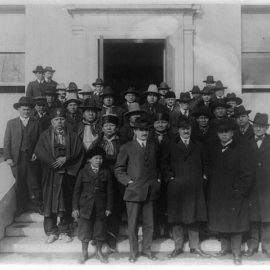

This article is an excerpt from the Shortform book guide to "Why We're Polarized" by Ezra Klein. Shortform has the world's best summaries and analyses of books you should be reading.
Like this article? Sign up for a free trial here.
What’s the filibuster in the US Senate? Should the filibuster be abolished?
In Why We’re Polarized, American progressive journalist, political commentator, and podcaster Ezra Klein explains why the filibuster should be abolished. He thinks the rule is abused and contributes to political polarization.
Keep reading to understand why Klein believes it’s time for the filibuster to go and why not everyone agrees with his analysis.
Why the Filibuster Should Be Abolished
The filibuster is a rule in the Senate that requires a bill to get a 60-vote supermajority (a 60% threshold in the 100-member chamber) to end debate on it. It can then go to a final floor vote, where it will then receive a simple majority, up-or-down vote. Unless the majority party wins 60% of the Senate seats (which is increasingly rare in our tightly contested and polarized system) the filibuster gives the minority party the means, motive, and opportunity to frustrate the majority’s agenda by forcing every bill to clear a supermajority threshold. Effectively, the minority party can veto the majority party’s agenda.
Should the filibuster be abolished? Klein thinks so. He lays out his argument for why the filibuster should be abolished, writing that the abuse of the filibuster is both a product of the climate of polarization and a contributor to it. The filibuster breeds cynicism among the voters because it makes it impossible for the majority party to govern and implement the agenda it was elected to implement. People become convinced that the majority party is corrupt, dishonest, or incompetent. Voters then typically respond by punishing the majority party at the polls and electing the minority party to replace them—effectively rewarding the minority party for its obstructionism and incentivizing it to engage in similar tactics in the future.
Without a filibuster, argues Klein, legislative majorities would have greater ability to pass legislation and enact their agenda. This would tamp down the voter cynicism and disillusionment that helps foster polarization. Instead, voters would see a greater connection between their votes and actual policies enacted. If voters are pleased with the policies passed by the majority party, they can reward that party at the next election; if they’re displeased, they can vote them out. Klein argues that this is precisely how politics is supposed to work in a healthy, functioning democracy.
| Does the Filibuster Encourage Bipartisan Cooperation? Some political figures have argued that, contrary to Klein’s analysis, the filibuster actually encourages bipartisan cooperation and reduces partisanship. In 2021, Republican and former Senator Orrin Hatch wrote that the filibuster enables the minority party to have a meaningful role in shaping legislation because it forces the majority party to secure some buy-in from the minority to clear the 60-vote threshold. Hatch argues that this doesn’t give the minority party unlimited ability to obstruct since overcoming a filibuster usually only requires the cooperation of a handful of members of the minority. Hatch points specifically to the passage of the CARES Act, the Covid-19 relief package passed in 2020. After a filibuster by Senate Democrats, the GOP majority agreed to add a number of progressive priorities to the package to ease its passage through the chamber, including additional funding for hospitals, increased unemployment benefits, and additional conditions on loans for businesses impacted by the pandemic. The revised bill passed the Senate unanimously. Hatch cites this as an example of the filibuster constructively shaping major legislation and forcing the two parties to come together. |

———End of Preview———
Like what you just read? Read the rest of the world's best book summary and analysis of Ezra Klein's "Why We're Polarized" at Shortform.
Here's what you'll find in our full Why We're Polarized summary:
- Why bipartisan cooperation is becoming increasingly difficult in the US
- The origins of modern political polarization and its impacts on the parties
- Ideas for how we might depolarize our politics






